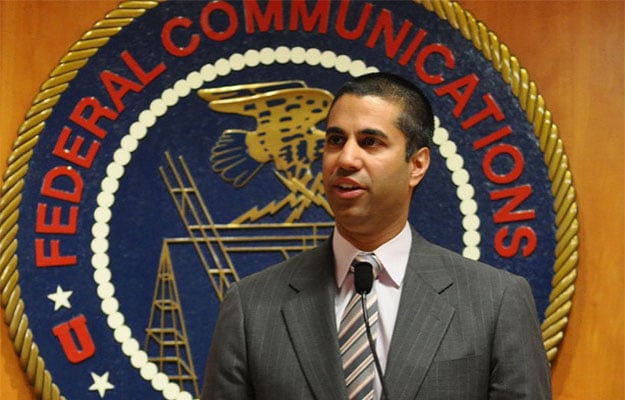Silicon Valley Titans Google, Amazon And Facebook Plead With FCC To Save Net Neutrality Rules
Silicon Valley is pushing back against Washington D.C., and for good reason. A lobbying group representing tech titans such as Google, Facebook, Twitter, Amazon, and Microsoft recently released a document in favor of net neutrality. The Internet Association (IA) indicated that it supported the 2015 Open Internet Order.
The IA’s report stated, “The internet industry is uniform in its belief that net neutrality preserves the consumer experience, competition, and innovation online. Consumers want and need their internet experience preserved and protected, regardless of the legal or regulatory mechanism.”

Federal Communications Commission Chairman Ajit Pai has argued that he would prefer for broadband providers to be regulated by the Federal Trade Commission. In theory, the FTC would decide whether companies are upholding their terms of service. Many consider the FTC to be less strict than the FCC.
Pai and his supporters argue that the Open Internet Order’s reclassification of broadband providers has been harmful of the economy. He recently noted, “After the FCC embraced utility-style regulation, the United States experienced the first-ever decline in broadband investment outside of a recession. In fact, broadband investment remains lower today than it was when the FCC changed course in 2015.”

The IA’s statement also urged Pai to outlaw “fast lanes”. These “fast lanes” allow ISPs to charge corporations like Google or Facebook more money in order to provide faster streaming. The IA also insisted that Pai’s order should apply to both fixed broadband and mobile internet access. In the past, wireless carriers insisted that they needed more “flexibility” to address users who supposedly utilize more data than the average customer.
USTelecom, the telecom lobbying organization, has also recently met with Pai. The group, however, has not disclosed the details since a formal FCC proceeding has yet to be opened. Pai is expected to tackle the issue this coming May.
The IA’s report stated, “The internet industry is uniform in its belief that net neutrality preserves the consumer experience, competition, and innovation online. Consumers want and need their internet experience preserved and protected, regardless of the legal or regulatory mechanism.”

Federal Communications Commission Chairman Ajit Pai has argued that he would prefer for broadband providers to be regulated by the Federal Trade Commission. In theory, the FTC would decide whether companies are upholding their terms of service. Many consider the FTC to be less strict than the FCC.
Pai and his supporters argue that the Open Internet Order’s reclassification of broadband providers has been harmful of the economy. He recently noted, “After the FCC embraced utility-style regulation, the United States experienced the first-ever decline in broadband investment outside of a recession. In fact, broadband investment remains lower today than it was when the FCC changed course in 2015.”

The IA’s statement also urged Pai to outlaw “fast lanes”. These “fast lanes” allow ISPs to charge corporations like Google or Facebook more money in order to provide faster streaming. The IA also insisted that Pai’s order should apply to both fixed broadband and mobile internet access. In the past, wireless carriers insisted that they needed more “flexibility” to address users who supposedly utilize more data than the average customer.
USTelecom, the telecom lobbying organization, has also recently met with Pai. The group, however, has not disclosed the details since a formal FCC proceeding has yet to be opened. Pai is expected to tackle the issue this coming May.

